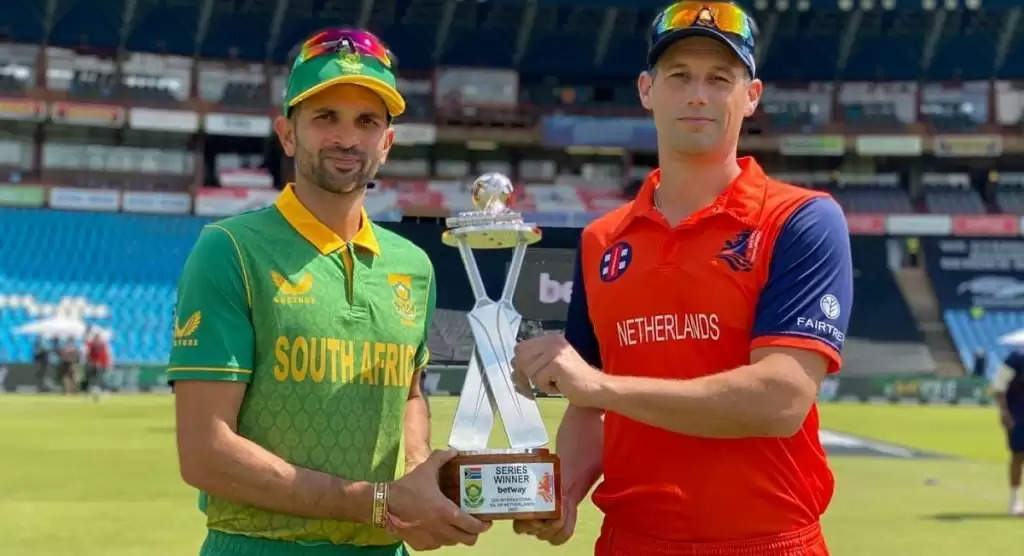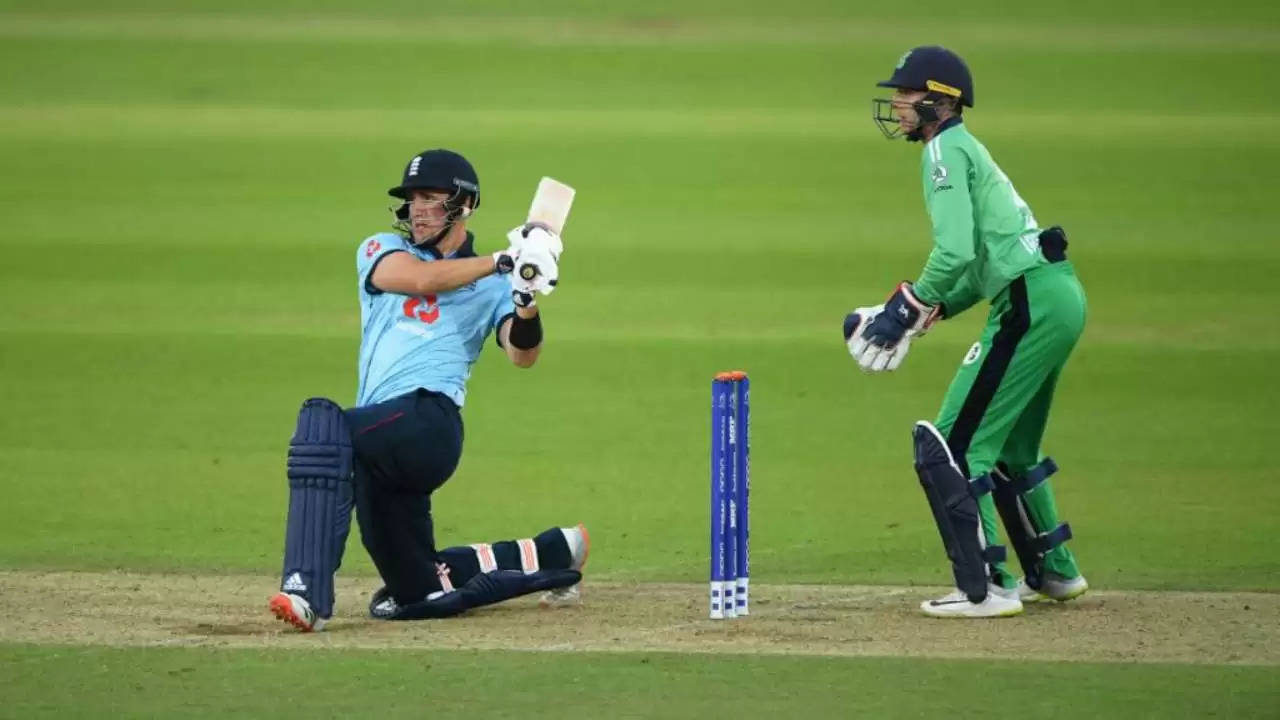Full-members’ insecurity and shortsightedness lead to the axing of ODI Super League

When South Africa played Netherlands on Friday in Centurion for the first of the three Super League fixtures, despite the gloom around the league’s imminent axing, one couldn’t help but look with interest at the points table of the sport’s only ever all-inclusive, merit-based World Cup qualification tournament.
The Proteas found themselves ninth in the standings before the toss, having conceded games to Ireland and Sri Lanka, and carried with them a fear that a loss against the Dutch could threaten to dent their chances of playing in India in two years’ time.

South Africa have a weakening rand, they have had a massive talent exodus in the last five years. But they receive a guaranteed eight-year sum of 132 USD million from ICC’s pool rights and have a healthy dose of bilateral tours to sell to the broadcasters. Despite all their decline, you expect them to be resourced enough to keep cricket’s lower-tier have-nots at bay and make the next World Cup.
But the ‘chance’, no matter how slender, of them missing the World Cup (at least automatic qualification) for the first time since 1992 might have been enough to creep in a sense of fear and insecurity amidst their set-up. This sense of insecurity is not new, it has been prevalent for ages now, and has held cricket back. It reflected, disastrously so, in a round of ICC meetings this month when a group of selfish men, mostly from the top rung of full-member representatives, with their poor awareness and shortsighted view of the world game, decided that a ranking-based World Cup qualification for the 2027 World Cup is more fit for purpose. Their purpose and motives, of course. Not the lower-ranked Test sides, not the 94 associates that the sport has seldom cared for.
The fallacy is evident, isn’t it? Without the Super League, chances of South Africa touring Ireland and hosting the Netherlands for a set of 3 ODIs each is just as high as BCCI finding a way to schedule the series that India are due to play with Zimbabwe and Afghanistan. It’s negligible, as it stands.
The BCCI recently added four extra matches (three ODIs and an additional T20I) to their tour of South Africa – the idea obviously to strengthen the relationship with CSA and influence boardroom politics – when they weren’t even part of the FTP originally and have no relation with the Super League whatsoever. And then, after it emerged that the quarantine issue will delay India’s departure for a scheduled Super League series in New Zealand in March next year, the Indian board arranged extra T20Is versus West Indies and Sri Lanka in their home season rather than showing any effort to find a window for the fixtures with Zimbabwe and Afghanistan.
That is the attitude we’re talking of. These top boards don’t know and don’t care for the importance of the Super League to cricket’s lower-tier sides, which, you wonder now, how it even got into existence at the first place despite so many powerful forces acting against anything that is meant for the larger good of the game rather than their own.
Besides their meaningless existence, the thing about rankings is that they are easy to game and skew in your favour. The Super League broke that pattern, it made the games played between the two World Cups matter and apart from giving the lower-ranked Test nations matches against the top full-members, gave the associates a chance to dream.
Also Read: ICC Cricket World Cup Super League Adds Context To ODIs But Could Do With A Few Tweaks

England are highly unlikely to host Ireland for a three-match series without the Super League.
Dreams broken for the associates with Super League set to get scrapped
The Super League gave the Netherlands an opportunity to play 24 games against the full-members outside a World Cup or a global qualifier. Before the league came into existence, they went nearly 25 years from their ODI debut in 1996 playing only 26 games against traditional top 10 Test members, with hardly any of them outside a major ICC event. Only one of South Africa’s previous 4 ODIs versus Netherlands were not part of an ICC event. They wouldn’t have played them in a fifth also if not for the Super League.
Netherlands’ upsurge to the league gave other leading associates a chance to believe. If the Super League was given its run and expanded in the next cycle, even at a conservative rate, it would’ve brought the likes of Scotland, Namibia, and Oman into its fold and ensured that those teams are getting frequent games against the top members with a place in the World Cup at stake for added context and encouragement.
“It was most definitely an aspiration, from an associate member’s perspective you are looking for stability and reliability of cricket and funding. So having a three or four-year cycle of full ODI cricket is immense,” Namibia captain Gerhard Erasmus told Cricbuzz.
If the Super League didn’t expand but just stayed in existence, there was a chance that a team like Scotland might have replaced Zimbabwe in its next cycle and earned a chance to strengthen their claim towards Test status and more regular white-ball fixtures.
The top team from League 2, part of the global structure that ICC had unveiled, featuring Namibia, Nepal Oman, Scotland, UAE, USA and Papua New Guinea, would’ve had the chance to earn promotion to the Super League if they outperformed the 13th side in the global qualifier of the World Cup. This certainly raised the hopes for Scotland skipper Kyle Coetzer but it’s all vanished now.
“It looks like we’re being pushed into a box of only playing each other for qualifying. It seems like a backward step from a fully-fledged structure that has Associates regularly getting those big games, or a chance to earn them, outside of big tournaments, and puts those lower ranked full members under pressure too,” he said.
“With promotion and relegation, think of what it would do for League 2 to have a full member playing? It would be nice to think that we can keep attracting Full Members to play here, and you hear these promises that they’ll look to play more against Associates, but anything comparable to what the Super League would bring? That’s just not going to happen.”
The latter part of his comments to Cricbuzz that Coetzer stressed is also important here. It’s not that CEOs from Ireland, Zimbabwe, Afghanistan don’t sit in the ICC CEC that recommended the doing away of the Super League to ICC board where mostly full-member directors sit. It’s just that they are also made to feel insecure enough to be voting for such moves or risk being demoted to cricket’s lower rungs. Why would they, or even West Indies, Sri Lanka, and Bangladesh, open up such possibilities? They are already partly treated poorly by the upper-tier nations in terms of funding, fixtures, and all else, why would they clear a path which only makes their survival more difficult and uncertain?
And so this whole system is broken. Merely taking matches of a World Cup to your targeted markets, because you see financial benefits, and pushing for an Olympics event doesn’t suffice. It is fixing a rotten structure of bilateral cricket, opening up routes for more countries to play Tests, ODIs and T20Is between these world events, which will make cricket a global sport.
Scrapping the Super League, which could’ve acted as a vehicle for cricket’s globalisation more than anything else, is a daylight robbery, a blow to cricket’s have-nots that they might fail to recover from. It threatens to take cricket back to the dark ages where they’re left playing themselves and beg for occasional fixtures against top sides.

